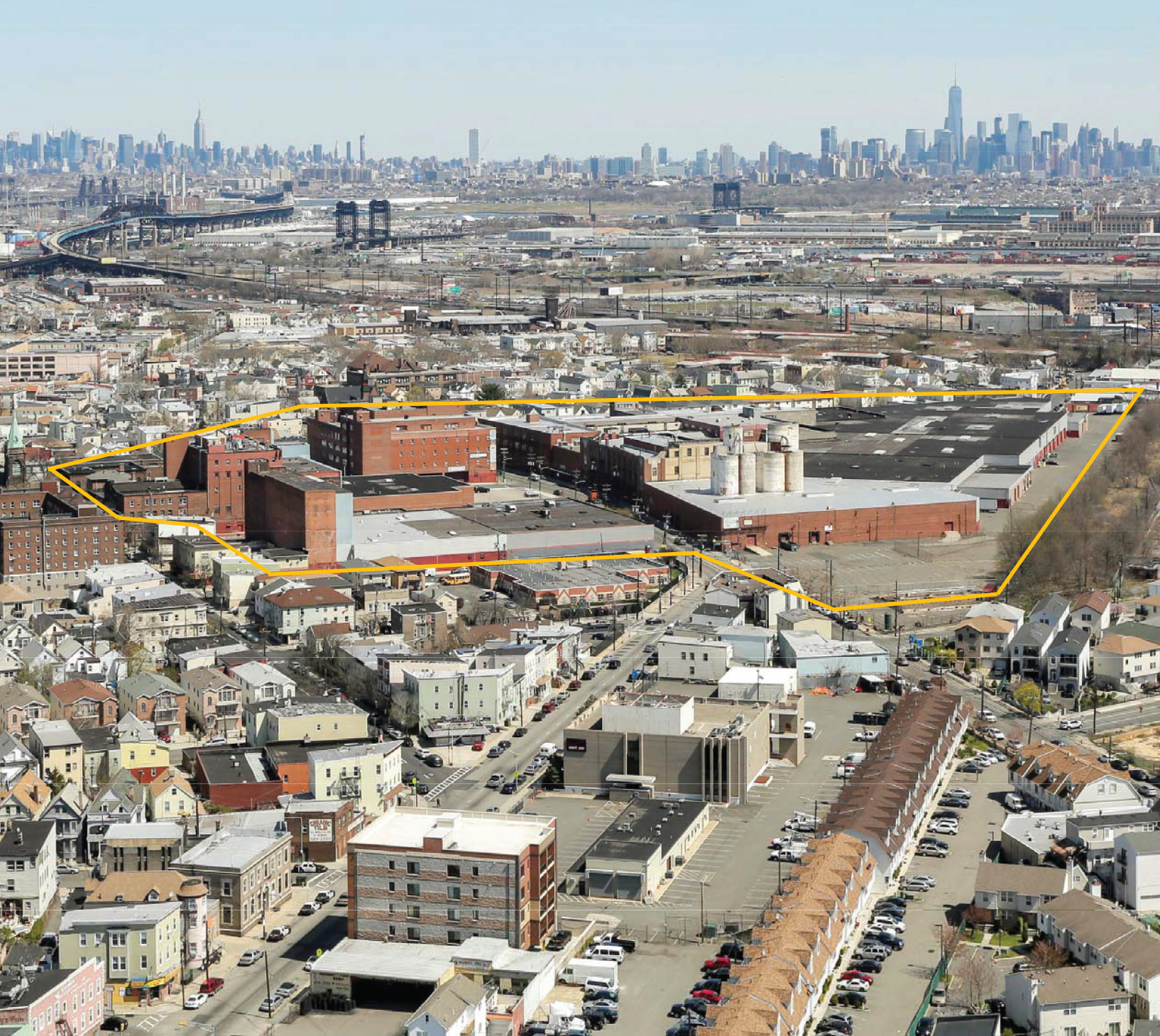Amador, the Past, the Coming Campaign, and the Enduring Pride of Newark's Ironbound
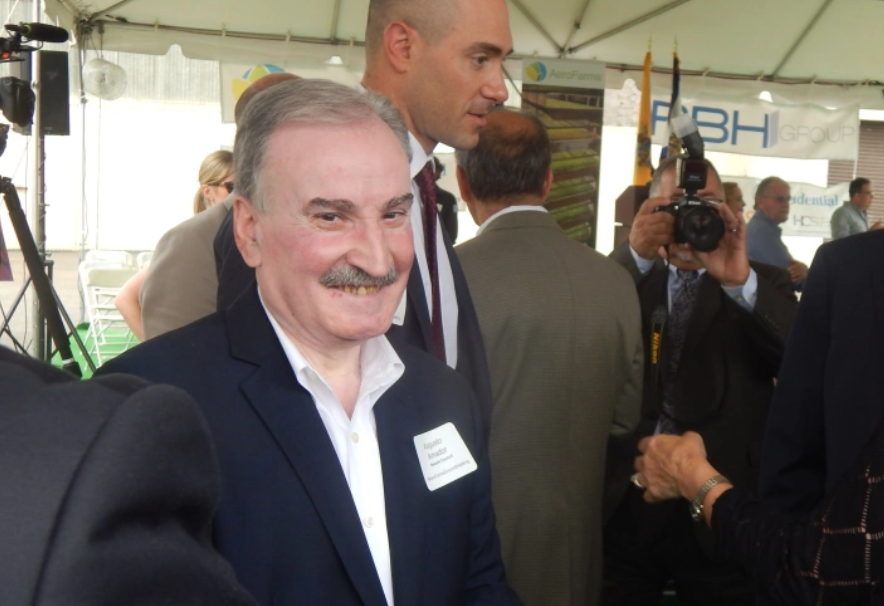
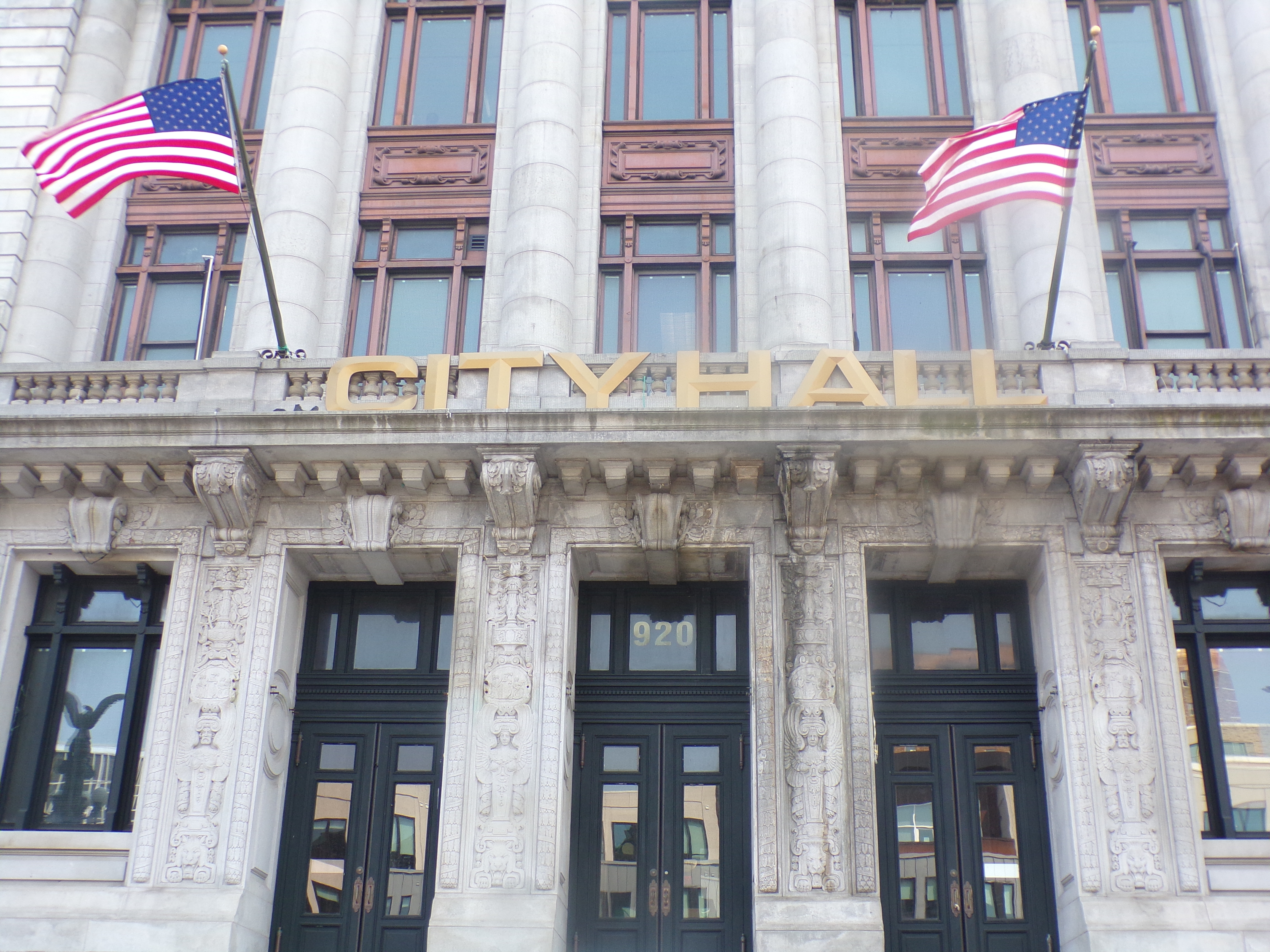
NEWARK – Projecting a decidedly austere, Renaissance mystique, Augusto Amador functioned independently in the Ironbound, irritating any number of mayors over the years who craved greater ranges of power to eastward only to run into the phlegmatic mustachioed councilman who courted presidents and prime ministers from Portugal while Newark- at its worst - wallowed in parochialism.
Lately in particular, the North reinforced Amador in a tough 2018 council race, which would prove the councilman's last as his retirement announcement a few weeks ago in advance of the 2022 election prompted Mayor Ras Baraka and his team to take stock of titillating territory bottled up by the implacable Amador for the last 24 years.
In pursuit of his third term with multiple allies prodding him toward a 2025 gubernatorial bid, Baraka wanted to add some muscle mass to his already considerably bulked up citywide frame. If the mayor sought a victory in the West Ward to secure a five-vote majority on the nine-person council, the East surmounted would give him some security – in addition to unlocking the last impenetrable kingdom of possibility. With its tax base, the train station, port, airport, and development potential enhanced by new rules increasing allowable height to 14 stories, the ward simply tantalized.
A significant part of what existed - including the enticements of future investment - hinged on the creative abilities of Portuguese immigrant leaders like Amador, a native of the port town of Murtosa, who arrived in the East Ward in 1966, one year before the Newark troubles. A PSE&G executive at the height of his professional life, Amador victorious as a council candidate in 1998 (he knocked off a Spaniard incumbent councilman) made a statement about the political power of the Portuguese in the Ironbound. Now, the end of his career marks a seminal moment against the backdrop of immigration cessation from those towns in Portugal that contributed unique culture and vibrancy to Newark. Like the Irish and Italian before them, many of the Amador generation of Newark Portuguese and their kin, who staved off industrial contamination to build a true oasis, have moved on to the suburbs. In the words of the councilman, "On the street where I live, Lafayette, not too long ago, three quarters of the residents were Portuguese. Now they're less than one third.
"That’s reality," Amador said. "That’s the American way of life."
The last election proved the shift, and the shrinkage of the councilman's longstanding base. In 2018, Ironbounders cast more than 3,400 votes, as the councilman fended off his challenger by a little over 100 votes. Few expected him to run again, but the institutional nature of his little city hall presence almost made it unthinkable to consider an election without him - and without the specific concentrated and organically prioritized voice of his community.
Gradually it sank in that he would no longer occupy the East Ward throne, and several candidates – all
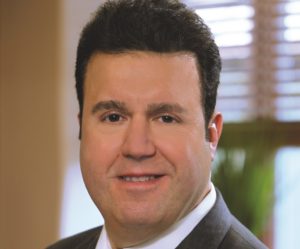
with retired police badges and all with ties of varying degree to the Portuguese, but none immigrants of the Amador generation – jockeyed for pre-season position. Former Police Chief Anthony Campos – who nicked Amador into the runoff four years go and almost beat him before getting lopped off, presented himself as the early favorite, an ironic torchbearer of East Ward independence given his antagonistic history with Amador. Mike Silva, a retired community-based cop and detective, claimed the support of the retiring councilman on the strength of his work in the Ironbound; while a third candidate, Louis Weber, a retired policeman and executive secretary of the ABC Board, awakened the mayor's interest as Baraka pondered new realms.
At a Team Baraka political meeting a week ago, Weber showed up as the presumptive East Ward candidate on the fast-developing Baraka ticket amid some talk that he would try to appeal - in addition to core voters - to other groups in the neighborhood perhaps less visible politically over the course of the last two-plus decades. Other candidates, like local businessman Jonathan Seabra, may also get in the contest, conceivably without the support of his powerful uncles.
But the ward focus at present prioritizes Campos, Silva and Weber as they vigorously - and each individually very likably - make the rounds in the exceedingly walkable ward.
"I look at my parents as average voters," said Assemblywoman Eliana Pintor Marin, chair of the
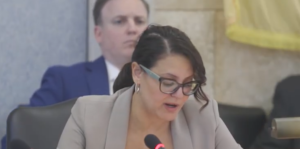
Assembly Budget Committee, who serves as the local Democratic Party chair here in the East Ward. "They want to be able to go to the office and speak to someone who has been entrenched in this community for a long time. They want someone who has seen what is going on but can move it forward.
"Having a Little City Hall is very important - the North Ward did it - and it helps bring the city services to people, including younger people moving into the area," she added. "The communication piece is important. The main ethnicity still have a language barrier. Policing is an issue and an issue citywide. People say crime is not as significant in the East Ward but there’s still crime. Also, making sure there are good nitty gritty basic services." In addition, the assemblywoman noted, new incentive packages stirring development and an influx of new residents into the already dense ward will require even more schools.
THE IRONBOUND'S MAN ON THE GROUND
The opposite of the typical backslapping politician, Amador cultivated a serious public image of reserve: dignity
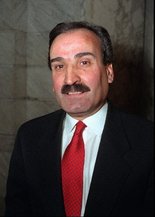
to his friends, remoteness - increasingly in the later years - to his enemies. Finally, as the next-generation competition unfolded relentlessly, "I'm realized totally as a human being," Amador, 72, told InsiderNJ. "I have my grandkids and a sense of accomplishment."
Usually economical in his speech with only the barest bemused smile visible under the prodigious old world moustache, he allowed himself now at the edge of departure a note of real defiance as he sized up the years passed, and riffed with somewhat uncharacteristic urgency about the record, both his and his community's. "People throughout the state have not given sufficient credit to Newark's East Ward, where we have the lowest level of crime and highest property values in the city," Amador said. "We have two new schools and two more coming. Getting involved, taking the kinds of positions I have, you make enemies along the way - and you have to be at peace. I had a different attitude toward the community. While some see elected office as a personal gain, I didn’t see it that way. I got into some fights and we won, and there wasn't a single night in 24 years when I couldn't sleep at night because of a troubled conscience. Not one."
Those fights included scraps with Sharpe James over control and priorities, an infamous district leader invasion by Cory Booker allies that brought out Amador's inner beast in full-blown self-protection mode, and ongoing fights to transform the ward out of industrial revolution ravages to a contemporary habitat with sustaining Portuguese accent notes. "He's been a survivor throughout his career, through many attacks, and you have got to give him credit for that," said Pablo Fonseca, former Chief of Staff to then-Mayor Booker.
Now, the sitting mayor's effort to mold Weber - proudly Portuguese by blood, with his own Ironbound story - into a candidate concerns Amador, who wants his successor to maintain a certain unique hegemony beyond the grip of City Hall. "We are a tale of two cities within the East Ward, but we are also a tale of two cities with the rest of the city," Amador said. "The life we are accustomed to is different from the rest of the city, in part because of the opportunities we have, like the train station, the airport, the port, and the opportunities for major development to take place."
The mayor's policy of inclusionary zoning - which requires developers in the city to dedicate part of their product to affordable housing, or to pay the city - may inhibit the best projects available to the Ironbound, in the councilman's judgement. He does not dismiss the ward's need to help take care of those less fortunate, "But we need to continue to support development opportunities that we have available to us. We do not want the East Ward to merely be a cash cow. We don't have the level of crime that exists elsewhere in the city, and we need to continue to provide the kinds of things we have and continue to manage that top leadership in the City of Newark rather than impair our growth."
He said he plans to be very engaged on behalf of Silva's campaign.
"It’s all a matter of character," Amador said. "Politics and character go hand in hand. I wouldn’t ever be
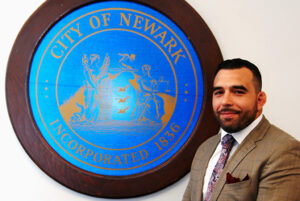
able to support Campos or Weber. Mr. Weber is being set up by the mayor. He’s not in charge of himself in terms of what positions to take in the community. He would be a rubber stamp for the mayor’s intention to take over the community.
"Campos," he pronounced the name with a precision that comes from not wanting to express excess irritation, "...the way he has behaved through the years - as police chief until now, this has nothing to do with his having run against me - makes it impossible for me to support him. Mike Silva on the other hand, comes from community policing. He's someone I can talk to, someone who understands the need to provide dialogue with different groups. We have one of the most diverse communities in the State of New Jersey. Mr. Silva is able to understand we are all different and yet as a police officer and as someone who has worked as an officer he has no favorites.
"He is a Portuguese-American," Amador added of the candidate whose family also hails from Murtosa.
He likes him, too - in his own reserved way.
"You don’t know the character of the individuals involved until something happens," said the councilman. "In my first four years I had no problem with Mayor Baraka, however that changed when I was told flat out the East Ward doesn’t matter to them. I asked for help from the mayor’s brother, and he told me the East Ward can go to hell." In a sign of things to come during this campaign cycle, Amador and others question Weber's record as a police officer and suggest Baraka - an avowed enemy of police brutality who unveiled a statue of George Floyd in front of City Hall - may have trouble standing proudly along his choice for the East Ward Council seat.
That said, Amador ranks Baraka as perhaps the best mayor with whom he served.
"In terms of policies implemented to move the city forward, the Baraka stamp on Newark is probably the strongest," the councilman said. "I think the fact he was born here and knows the city well are a plus. He understands whatever needs to be done." But while he backs Baraka's overall vision for Newark, he wants the East to abide independently on the political eastern front. "The East Ward has had a great impact on the image of the city," said the councilman. "Let’s not forget that regardless of what we do in the future, the lead was always taken by the East Ward in terms of moving the city forward and attracting a strong middle class. I will take an active part in the campaign because finally it’s not about buildings. It’s not about streets. It’s about lives. I’m going to be extremely involved. If we make the mistake of allowing someone who doesn’t have the character to be in this there will be grave consequences for the community."
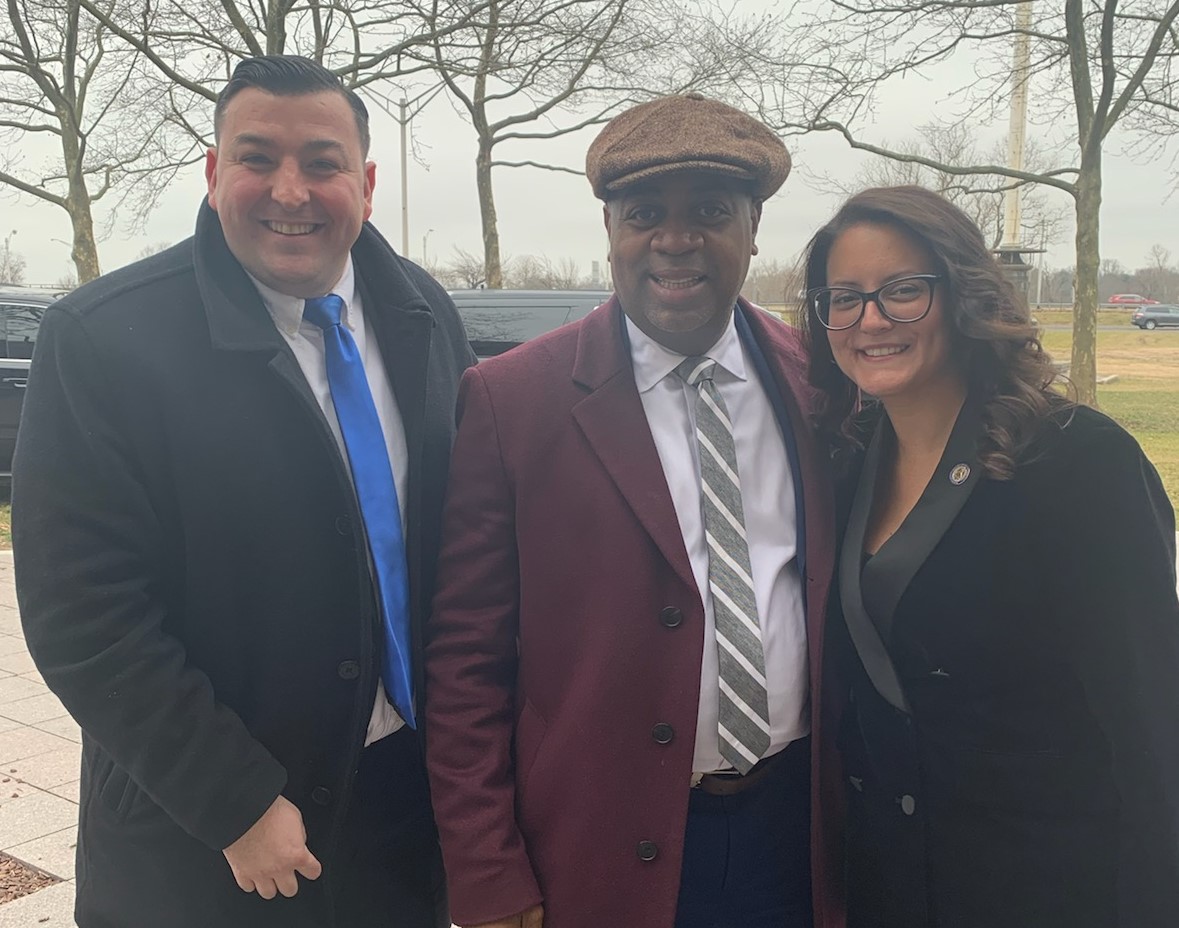
THE COMING COLLISION IN THE EAST
Campos - so close to the prize in 2018 - has no plan to back down, regardless of which organizations or players mobilize against him. He has some cash - $200,000 at last glance, according to the state Election Law Enforcement Commission (ELEC), a deep background in police work as the only man in the race who walked the beat as a cop in four wards - all of them except his own - and served as precinct commander in the east on his way up the totem pole to chief. A policy wonk with a badge, he also survived his share of sharp-elbowed fights in the department, notably a clash with former Police Director Garry McCarthy in the Booker years over transfers, not to mention the sulfuric acid bath he endured in his challenge of Amador, which he survived, with his chin raised.
His opponents have police experience. But only Campos led the department.
No one could think to call him politically green. Not after that lurid contest in 2018.
His experience gives him a leadership edge, and a campaign edge, critical knowledge about all of Newark's subterranean passageways and political intrigues, and his own room of power players in addition to volunteers. But if four years ago he had the benefit of Baraka not getting hardnosed about the contest, an energized mayor at the outset of the East Ward collision could deprive Campos of allies who still work for the city and will have orders to stay out of the fray. "Baraka with a horse in the race could be a problem for Anthony - it could end up being his Achilles Heel," a source told InsiderNJ.
Also, Campos' presence in the contest could reengage - or simply enrage -Essex County Sheriff
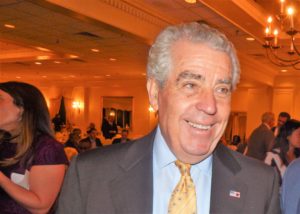
Armando Fontoura, the Ironbound's favorite son. Campos and Fontoura don't get along, the residue perhaps of their having led respective law enforcement agencies with intractable force. Fontoura jumped into the 2018 contest alongside Amador with particular gusto. But Fontoura and Baraka emerged from the 2021 Democratic Primary on less than congenial terms, too, the consequence of the mayor's perceived support for Fontoura challenger John Arnold; and if the sheriff won't back Campos, neither is he likely to express positive energy for Baraka's choice Weber. If Fontoura goes with Amador's choice Silva, the question then becomes how much weight does he pull with him, forces that could include the county organization and/or the North Ward and perennial resource and ground troop generators North Ward Councilman Anibal Ramos and Party Chairman Sammy Gonzalez.
Ramos had to be cautious.
People watched one another to see who flinched first.
The veteran North Ward councilman is running with Team Baraka.
That fact lends credence to those who speculate about Baraka's final intentions.
Will he go in hard behind Weber at the risk of creating a war with the North?
By the same token, will the North go in hard with Silva at the risk of infuriating the mayor?
Both sides convey the practice of delicate political arts at present, which ultimately could change the dynamics of the contest, either soon - or more significantly in a runoff; and lay the groundwork for future citywide power projection.
The East could prove a major offensive for the mayor - or a political head fake as he concentrates forces on defusing insurrectionary activity in the West, Central, and South - the core of his base.
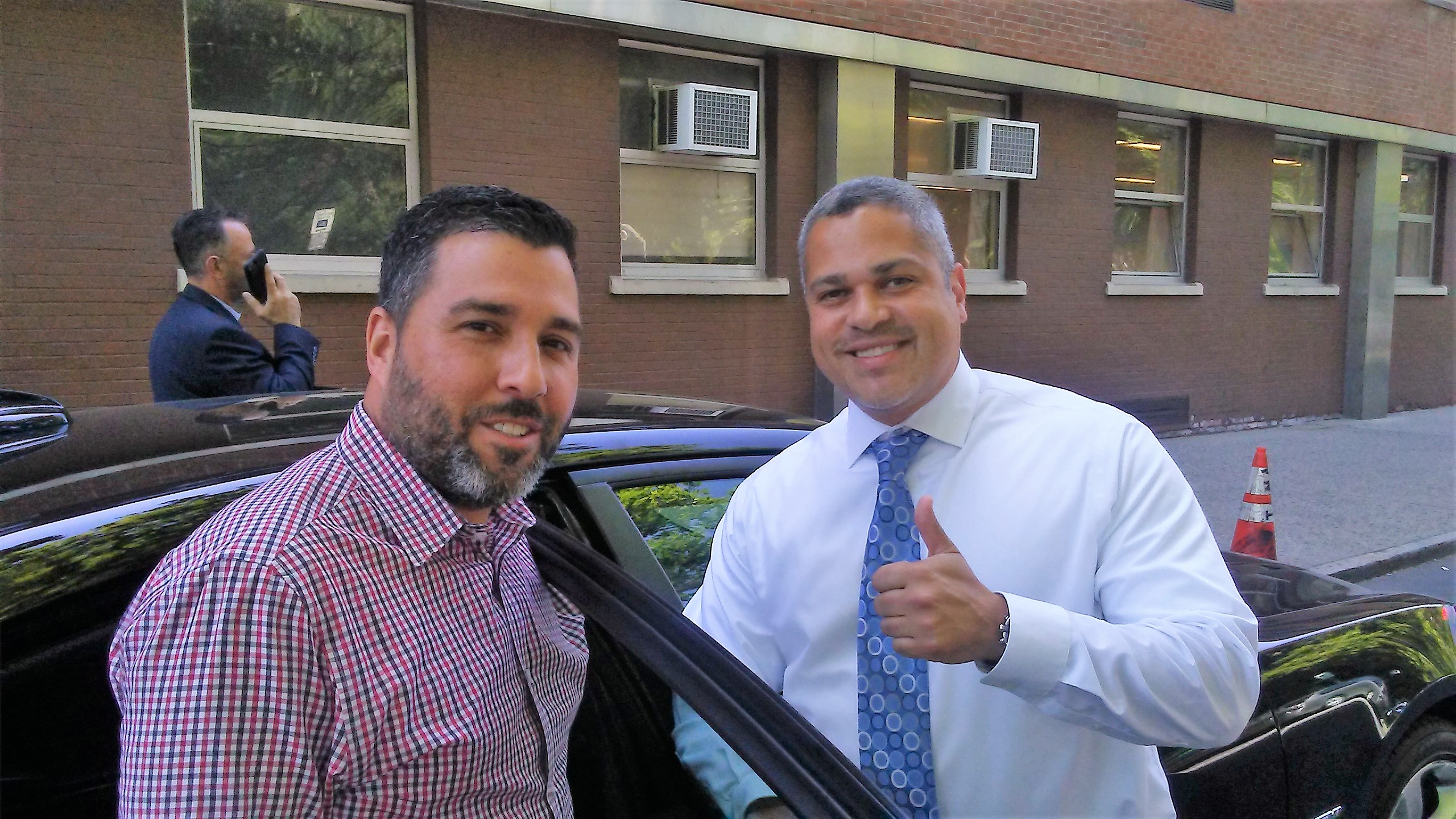
AN IMMIGRANT STORY
The Port Authority and the Governor’s Office play big in the ward, too, given the confluence of transportation infrastructure, raw power projection, the warehousing and shipping industries, the impact of flooding, and new growth spurred by state incentives. Incoming high-rises will change the East Ward as much as the retracting influence of Amador's generation. A transactional state of mind exponentially expands. In one of the nation's oldest cities, “No one, as of yet, has planned for the city of future,” in the words of former Newark COO Natasha Rogers.
But the Portuguese gave their own global stage to the East, providing a space for the Prime Minister to watch a World Cup soccer game with Governor Phil Murphy, for example; or inviting the president of Portugal to detour here after an appearance at the United Nations.
"We transformed our image from dilapidated to something we can be proud of," said Amador, insistent on triumph.
The roots of the battle for respect came with pain and many sorrows.
"I'm writing a book about my father, who came here in the 40's and 50's from Portugal," Amador said. "He went to Brazil first and from Brazil he came here. He lived in a one-bedroom apartment where he confronted the difficulties of an immigrant. I write this book to find what it was he had to go through; what he survived in the way of solitude the loneliness; the condition of being an immigrant with no assurance about the future."
No unsteadiness crept into Amador's voice as he conveyed his father's struggles.
"I am extremely proud of what my people could accomplish only in America, and what I have been able to accomplish as an immigrant," he said. "The fact that I got into politics to change the lives of people around me guides me to know that whoever sits in my chair should also be guided with a respectful sense of silences with tears. That's the name of the book about my father - Silences with Tears.
"The reason for the silences is that he lived 30 years by himself, retired and went back and lived with silences when my mother passed away," Amador added. "My father was disciplined. To this day, I have an obligation to find out how one human being survives with all the hardships thrown at him; the same as the Irish and Italians who survived as poor immigrants in this place, and African-Americans who came from the South to do cheap labor jobs available in factories. I came here with the benefit of a privileged life because of my father, who saw me care for other immigrants in a snowstorm in Detroit, guiding them to a hotel, and told me I did the right thing, he was proud of me, but. He could never give something close to a compliment without reminding me there was something else - some other obligation I was not fulfilling. This is the way of an immigrant who lives with discipline. Those are the values I grew up with here."

THE PRIDE OF THE IRONBOUND
The retiring councilman’s political pedigree intrigues, in part because it relates to the larger fabric of Essex politics. He knocked off incumbent Councilman Henry “Hank” Martinez in 1998 to make history as the first Portuguese to nab a Newark City Council seat. Nothing changes that legacy. He will always be the first. The immigration trend suggests that he was the first and last. How Amador beat Martinez relates back in part to when Tom Giblin and Cardell Cooper squared off in a Democratic Primary for the vacant county executive seat in 1994. Martinez was also a freeholder, and he ran with Giblin on the line. Sheriff Fontoura backed Cooper, who won the primary, but would go on to lose the general election to Republican Jim Treffinger.
Fontoura was irritated with Martinez, running against his county executive candidate like that and picking up on the local appetite for a history-making Portuguese Councilman, he got behind Amador, who at the time served on the school board. Intent – as Fontoura and other Portuguese Americans were – on claiming a council seat with jewel in the crown implications for that only postcard-worthy portion of an otherwise mostly smoldering city – local businessman Amerigo Seabra likewise snubbed Martinez, and backed Amador.
“We need a Portuguese councilman,” was the mantra.
Amador won.
Twenty-four years later, the neighborhood’s changed. The old proud Portuguese base of Amador’s has
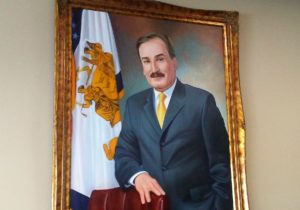
dwindled over the years. Each election, he received fewer votes. He went hard negative on Campos, but not nuclear. Some Amador allies originally wondered why he didn't vaporize Campos by hitting some softer underbelly issues on the retired cop. It finally happened - not substantively but in a regrettably ugly way, as soft messaging hit Campos - who grew up in a Portuguese home - for supposedly not being sufficiently Portuguese. Campos walked through it with a pride of his own, built on his own authentic story, intent on not losing his dignity in the face of cruel and unfounded, untraceable attacks.
The austerity between the two men hardened into an even more bitter inter-generational rivalry.
That's politics.
For his part, Amador's toughness came from his father coming here, laying a foundation for his son, returning to Portugal, dying, receiving a church burial attended by many. Whether in Murtosa or Newark, the family depended on one another. "When my father was working for us in Newark, my brother registered me in school; I went to college there. Most of the stuff I based my life on came from the toughness of my father and what I learned from my brother."
Last week, Amador returned to Portugal to bury his brother.
The church was filled with people.
Days later he was back in Newark, the tears and trials of earlier Amadors still the core of his stake in America, otherwise known as the East Ward. "It’s up to the leaders of the city to recognize that we turned the community away from the image it had in the 1960s and 1970s," said Amador, not a candidate anymore, but a councilman still for a little while remaining, intent on the next campaign even now, and - if silent much of the time and reluctant to award easy compliments to people around him - alert with a sense of history and irrevocably Ironbound proud.
